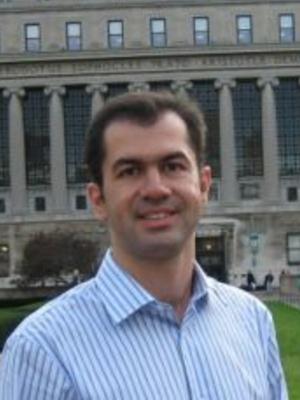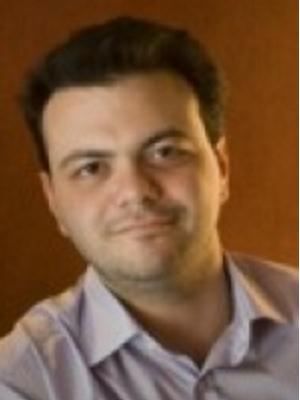The tremendous growth of wireless technologies and applications as well as the increasing number of radios demand an understanding of in-field performance to design the next generation of wireless systems. Complex channel properties such as multipath, delay spread, and Doppler effects prevent even the most complex channel models from exactly characterizing repeatable in-situ behavior. Abstract models of devices and energy storage, as well as emerging paradigms such as energy harvesting enabled systems, make estimation of system performance quite challenging unless supported by field experiments.
An understanding of paradigms and ideas in wireless systems requires the evaluation of these ideas in the field via empirical measurements. While analytical and simulation-based approaches are useful, they are often limited by the simplistic modeling of the wireless protocols and devices and by the varying and errorprone wireless channel. As a response to these limitations, the need for experimental wireless network measurements has gained wide recognition in the networking research community.
WiNMeE 2016 is the twelfth edition in the International Workshop on Wireless Network Measurements and Experimentation series that began in 2005, and is intended to bring together researchers in the field of experimental wireless networking and serve as a forum for discussing advances and challenges in experimental wireless network measurements and experimentation.
Topics of interest:
- Experience and measurements from building, designing and/or operating production or research wireless networks
- Measurement and characterization of wireless network traffic such as WLANs, cellular networks (including smartphone and mobile application traffic characteristics), wireless home networks, vehicular ad hoc networks, cyber physical and sensing systems
- Experimental methodologies for measurement and analysis of the Internet of Things
- Measurements related to spectrum sharing and cognitive radio networks
- Methodologies for measuring and characterizing heterogeneous wireless networks
- Prediction and inference of user access, demand, mobility and energy availability
- Experiment-driven mobile social network and mobility models
- Experimental validation of network simulators
- Measurement-based network management and troubleshooting
- Experiences with wireless measurements, including novel measurement techniques
- Methodologies for validating wireless test-bed results and improving the repeatability of tests, simplifying experiment setup and reconfiguration
- Software tools for building and/or managing wireless test-beds
- Techniques and experiences with collecting, archiving, anonymizing, analyzing and sharing wireless measurement data
Important Dates
Paper submission: February 2, 2016, 23:59 PST (extended and firm)
Notification of acceptance: March 1, 2016
Camera-ready/registration due: March 15, 2016, 23:59 PST
Download Call for Papers (pdf)
The submission is handled via the EDAS system.
Registration
To register, please go to https://wiopt2016.regfox.com/wiopt2016. A "Workshop Only" registration is sufficient. After you pay for the registration, record the registration code. Enter the registration code at the EDAS paper information page.
Keynote speaker
 |
|
Violet Syrotiuk Arizona State University |
Workshop Schedule
| 09:00 - 10:30 | Session 1: Keynote Talk |
|---|---|
|
Screening Experiments: Do Interactions Matter?
Violet Syrotiuk |
|
| 11:00 - 12:00 | Session 2: Testbeds: deployment experiences and management |
| A semantic approach to wireless networking testbeds infrastructure
Filip Jelenkovic, Milorad Tosic and Ivan Seskar |
|
| Realizing Cost-Effective Marine Internet for Fishermen
Sethuraman N Rao, Dhanesh Raj, Aiswarya S and Siddharth Unni |
|
| 13:30 - 15:30 | Session 3: Measurements: methodologies and practical implications |
| Understanding the Intermittent Traffic Pattern of HTTP Video Streaming over Wireless Networks
Ibrahim Ben Mustafa, Mostafa Uddin and Tamer Nadeem |
|
| Analyzing X2 Handover in LTE/LTE-A
Konstantinos Alexandris, Navid Nikaein, Raymond Knopp and Christian Bonnet |
|
| How bad is the flat earth assumption? Effect of topography on wireless systems
Fraida Fund, Regina Lin, Thanasis Korakis and Shivendra Panwar |
|
| Geometry-Based Channel Recognition for Context-Aware Applications
Jialin He, Hui Liu, Pengfei Cui, Jonathan Landon, Dinesh Rajan and Joseph D. Camp |
|
| 16:00 - 17:00 | Session 4: Algorithms: Measurement-driven optimizations |
| Removing TCP Congestion Control on the Last Hop in Split TCP Environments
Franck Le, Ho Yin Starsky Wong, Ramya Raghavendra, Vasileios Pappas and Erich Nahum |
|
| WhiteMesh: Leveraging White Spaces in Wireless Mesh Networks
Pengfei Cui, Yuanyuan Dong, Hui Liu, Dinesh Rajan, Eli Olinick and Joseph D. Camp |
Workshop Chairs
 |
 |
|
Thanasis Korakis NYU, USA |
Theodoros Salonidis IBM Research, USA |
TPC members
| Joseph Camp | Southern Methodist University, USA |
| Serge Fdida | University Pierre & Marie Curie, France |
| JongWon Kim | Gwangju Institute of Science and Technology, Korea |
| Dimitrios Koutsonikolas | University at Buffalo, SUNY, USA |
| Tommaso Melodia | Northeastern University, USA |
| Pedro Merino | University of Malaga, Spain |
| Ioannis Pefkianakis | HP Labs, USA |
| Ramya Raghavendra | IBM Research, USA |
| Jose Rezende | University of Rio De Janeiro, Brazil |
| Ivan Seskar | WINLAB, Rutgers University, USA |
| Patrick Tague | Carnegie Mellon University, USA |
| Leandros Tassiulas | Yale University, USA |
| Mike Zink | UMass Amherst, USA |